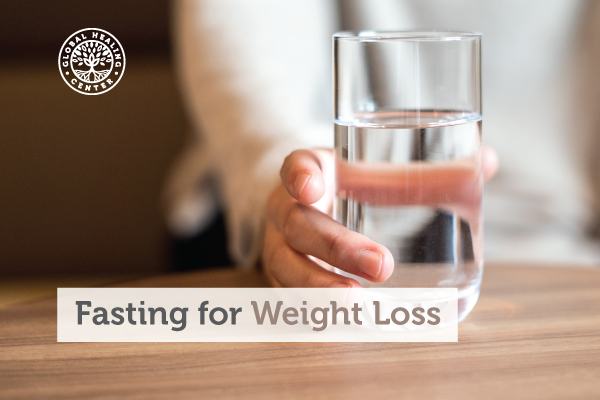
Fasting is a great way to begin a new fitness or weight loss program. Reducing or, really, eliminating food and beverages that contribute to weight gain will help to kick-start your efforts and has the added benefit of body detoxification and colon cleansing. Some people fast by only eliminating solid food from their diet, while others prefer to eliminate both solid food and all beverages except water. Which type of fast you choose really depends on your starting points and personal health considerations.
Advantages and Cautions
By immediately reducing your caloric intake, fasting will produce immediate, short-term effects. Fat that has already been stored in your body will be used for energy that would normally come from calories in consumed foods and beverages. Using fat means losing fat.
Additionally, toxins contained within this fat will be eliminated through sweat, urine, and feces. Skin tone, oral health, and cardiovascular health are positively affected by fasting for weight loss. Short-term elimination of food intake also gives your body the necessary rest and recuperation needed to maintain optimal health.

Fasting for Weight Loss - In-depth Interview with Dr. Goldhamer & Dr. Group, DC
Length: 93 minutes
There are some disadvantages to fasting and things to be considered. When beginning a fast, many people cite general lethargy and headaches as common side effects. Also, a long term fast will cause your body and metabolism, to slow down as your body enters a “starvation mode” to protect itself. This can be counterproductive and a feeling of low energy and a weakened immune system via a loss of nutrients can result. Over a long period of time, this can prove detrimental to your health.
Supportive Research
The Center for Conservative Therapy in Penngrove, California found that water-only fasting produced favorable results (normalized blood pressure) for individuals with hypertension and was beneficial for starting a health-promoting diet and jump-starting lifestyle changes. [1]
The Laboratory of Neurosciences in Baltimore noted multiple benefits with intermittent fasting and/or a caloric restricted diet in the form of enhanced cardiovascular function, improved brain function, blood pressure reduction, and an overall decrease in the risk factors that contribute to coronary artery disease. [2]
Other Benefits to Expect
Typically, you can expect to lose up to two pounds per day during the first few days. However, you can also expect to have a constant feeling of hunger. This should dissipate about the third day of your fast. From then on, you can lose about a pound a day throughout your fast. During this time, water is your friend. A steady intake of water will help to alleviate some, but not all, hunger pangs, as well as "flush" your body and facilitate the removal of toxins.
Some people opt to drink water and organic, nutritious juices during their fast. Organic fruit AND vegetable juice will supply the body with vital nutrients and make the journey a little easier. Additionally, the immune system will be kept strong and the feelings of fatigue and lethargy will be somewhat less. If you go this route, you should drink both vegetable and fruit juices and it's best if you make the juice yourself from fresh, organic fruits and vegetables. Stocking up on sugar-laden, frozen orange juice concentrate is not really what I'm suggesting.
After your fast, keep your body clean and adopt a diet of healthy, organic foods that boost your metabolism naturally. And, of course, incorporate daily exercise into your life to not only maintain a healthy weight, but to strengthen your body as well.
References (2)
- Goldhamer A, Lisle D, Parpia B, Anderson SV, Campbell TC. "Medically supervised water-only fasting in the treatment of hypertension." J Manipulative Physiol Ther. 2001 Jun;24(5):335-9.
- Mattson MP, Wan R. "Beneficial effects of intermittent fasting and caloric restriction on the cardiovascular and cerebrovascular systems." J Nutr Biochem. 2005 Mar;16(3):129-37. Review.
†Results may vary. Information and statements made are for education purposes and are not intended to replace the advice of your doctor. If you have a severe medical condition or health concern, see your physician.




